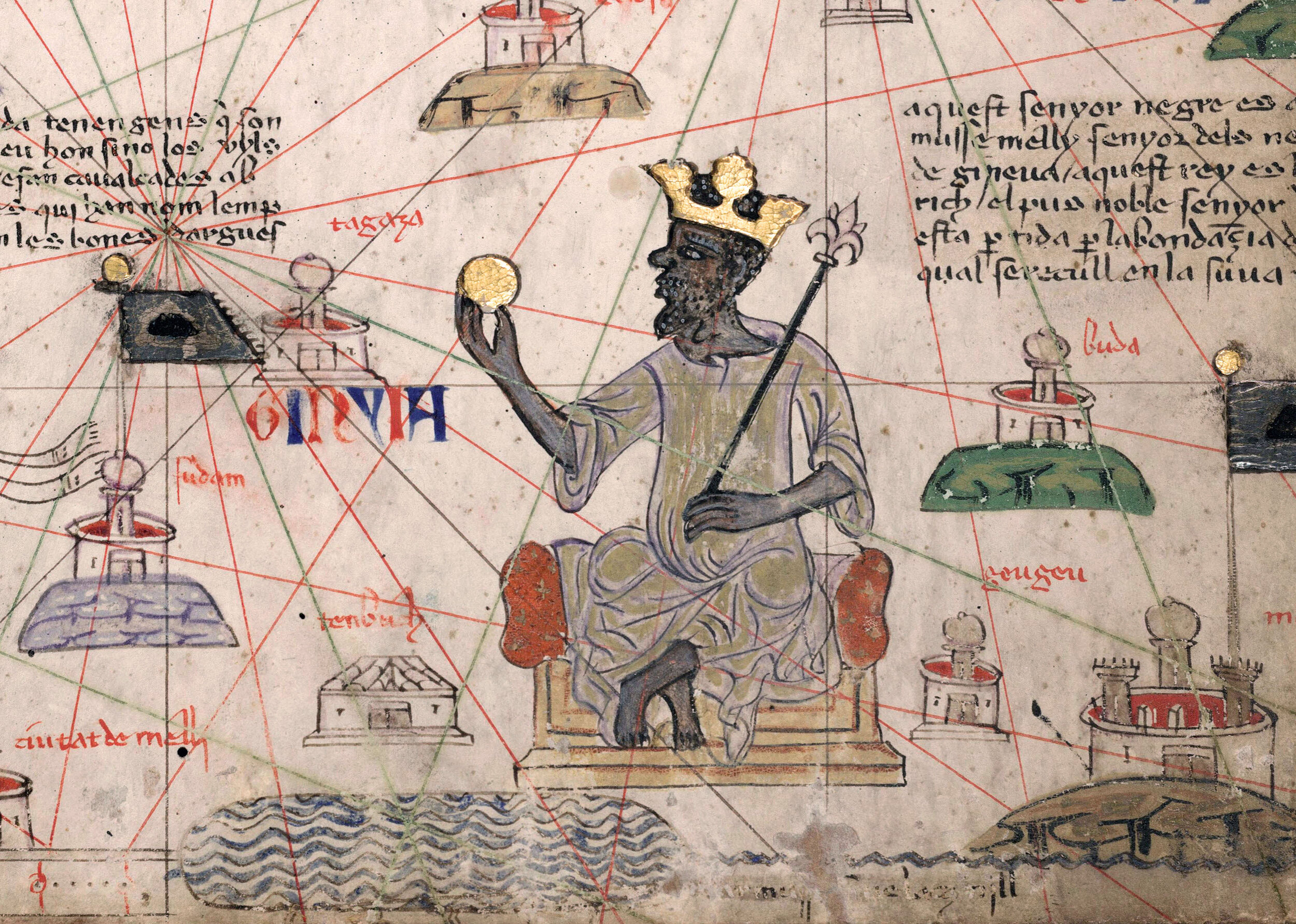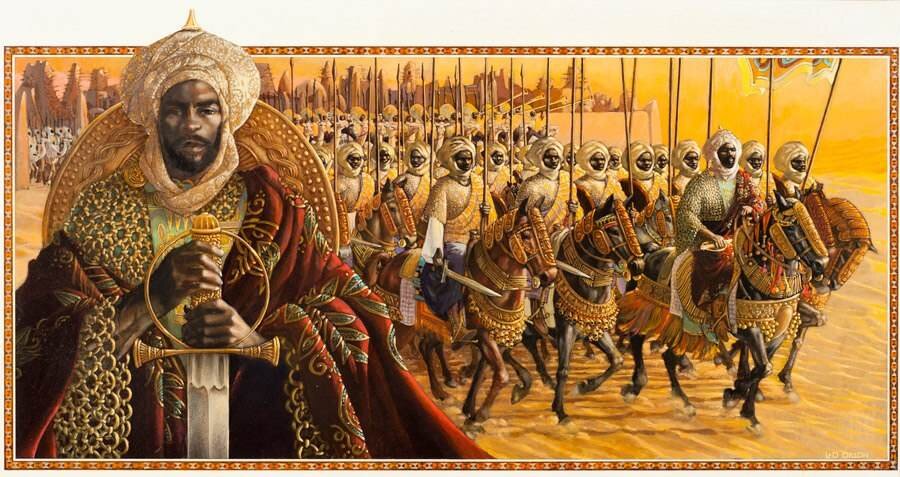Mansa Musa’s Pilgrimage to Mecca: Luke Pepera (1325)
In this episode of Travels Through Time, the writer and broadcaster Luke Pepera introduces us to Mansa Musa, a dazzling figure in African history. Mansa Musa was the Emperor of Mali in the fourteenth century and we follow him as he embarks on his spectacular pilgrimage to Mecca in 1325.
This pilgrimage was a journey of epic proportions, involving a procession of tens of thousands of people and the transport of extraordinary amounts of gold, the precious metal on which Mali had built its wealth.
The extensive trade networks and zest for learning in Africa at this time has led many to consider it a ‘golden age’. This was particularly true of Mali, which had grown to be the largest empire in West Africa since its establishment in the thirteenth century by Mansa Musa’s great-uncle, Sundiata Keita.
Despite this, however, the Malian Empire was little known outside of the continent until Musa’s famous pilgrimage. News of the emperor’s opulence spread far and wide and, in the opinion of our guest, first planted the idea in the European imagination that Africa was a place full of resources to be exploited.
Perhaps what is most impressive about Mansa Musa’s reign, however, was not the extent of his riches but rather what he did with it. He was a deeply pious and diplomatic ruler whose reign was marked by his pragmatism and commitment to improving the culture and standing of Mali.
In this episode Luke Pepera brings this impressive and intelligent ruler back to life. He tells us about Musa’s generosity to the people and towns he came across on his pilgrimage and explains how a masterful piece of political theatre ingratiated him with the Egyptian sultan in Cairo. Luke then explores the impact that the flood of architects, scholars and poets who accompanied Musa on his return to Mali, along with the effect they had on the intellectual life of Timbuktu.
To hear more stories from African history, you can follow Luke on Twitter at @LukePepera and read along with his blog.
Listen to the podcast here
Show notes:
Scene One: Early 1325, as Mansa Musa sets off on his extravagant pilgrimage to Mecca.
Scene Two: Mid-to-late 1325, in the court of al-Nasir, the Egyptian sultan, to witness the meeting between the two great leaders.
Scene Three: Late 1325, as a scholar in the Djingeureber Mosque at Timbuktu, which was established by the architects and scholars whom Mansa Musa brought back from his pilgrimage.
Where did the tradition of throwing mortar boards in the air come from? What was written in the tomes at Timbuktu? And how, in the first place, did Europeans even come to hear of Africa? Answers to these questions and more in my episode with @tttpodcast_ :https://t.co/99dpjkHJ0X
— Luke Pepera (@LukePepera) July 21, 2020
Memento: A book of poetry from the University of Timbuktu
People/Social
Interview: Artemis Irvine
Guest: Luke Pepera
Producer: Maria Nolan
Titles: Jon O
Follow us on Twitter: @tttpodcast_
Podcast Partner: ColorGraph
Africa and the location of the three scenes
The Medieval Mali Empire at the end of Mansa Musa's reign (1337 CE): WikiCommons
Listen on YouTube
What will you learn in this episode:
How to look beyond euro-centric approaches to history
About one of the most impressive and successful leaders from medieval African history – Mansa Musa
The importance of Islam to trade and scholarship in medieval Africa
Cross-cultural exchange in the architecture and learning of fourteenth-century Timbuktu
Places and people mentioned in this episode
Complementary episodes
Chasing Doctor David Livingstone: Petina Gappah (1871)
The award-winning Zimbabwean novelist Petina Gappah takes us in pursuit of the Scottish missionary and explorer David Livingstone in the year 1871. We follow the journalistic chancer Henry Morton Stanley as he attempts to find Livingstone […]
Crusaders: Dan Jones (1147)
In this episode from season two of Travels Through Time the New York Times bestselling historian Dan Jones guides us back to 1147: the launch of the Second Crusade, the start of local crusading in Europe and the bloody Fall of Lisbon.











